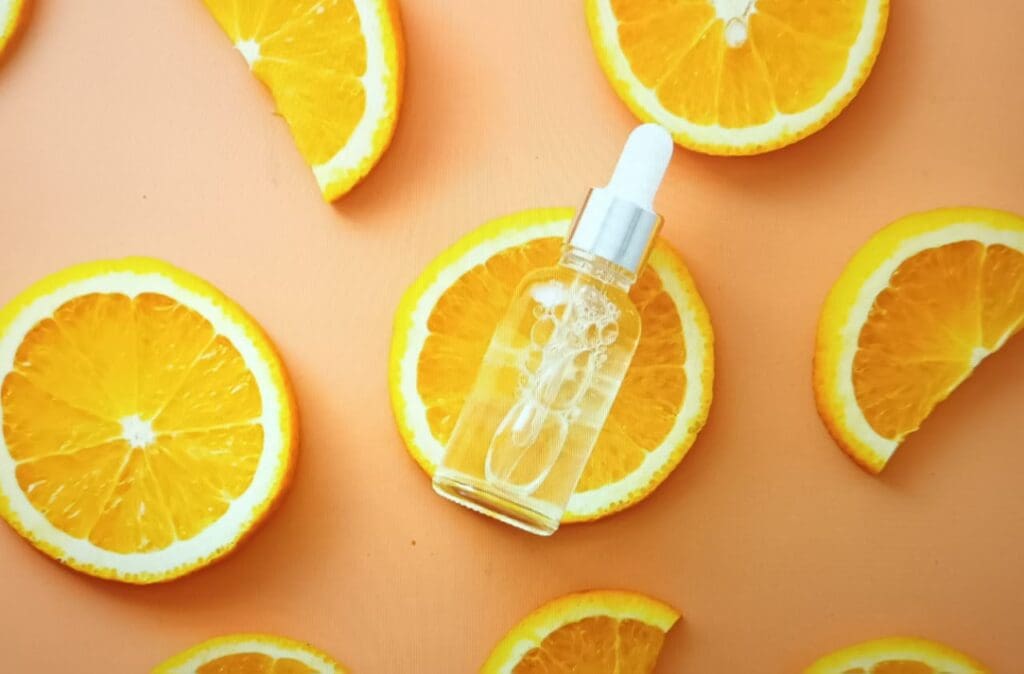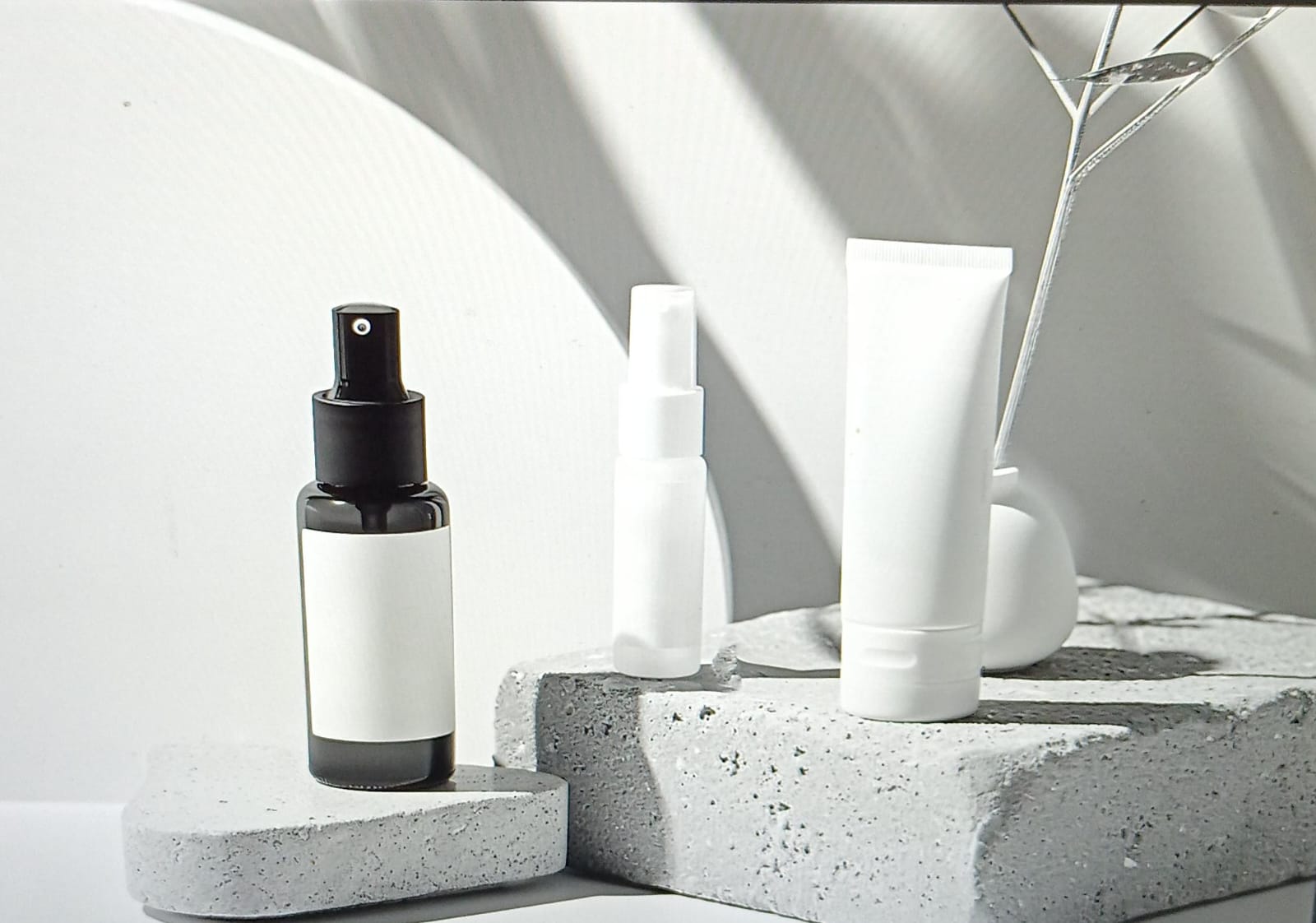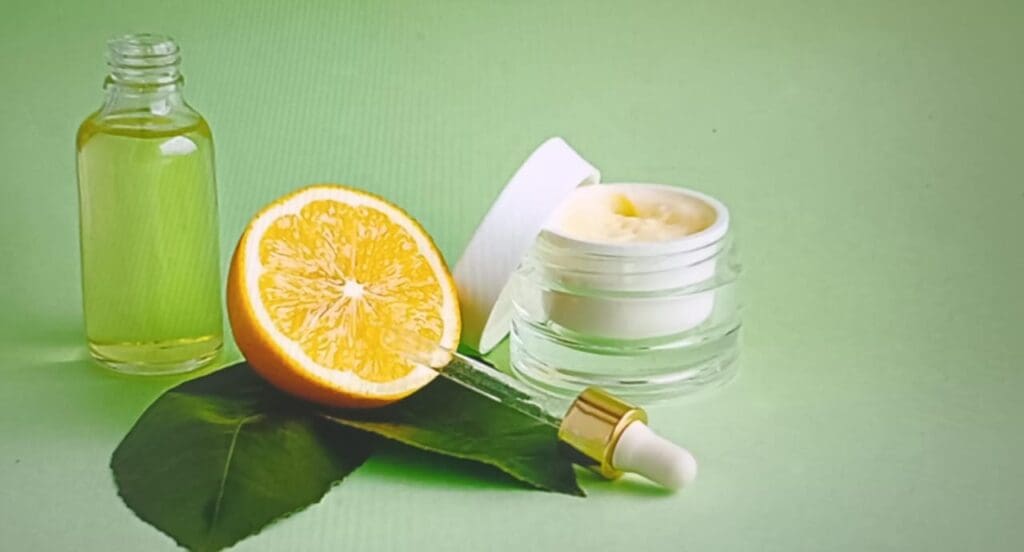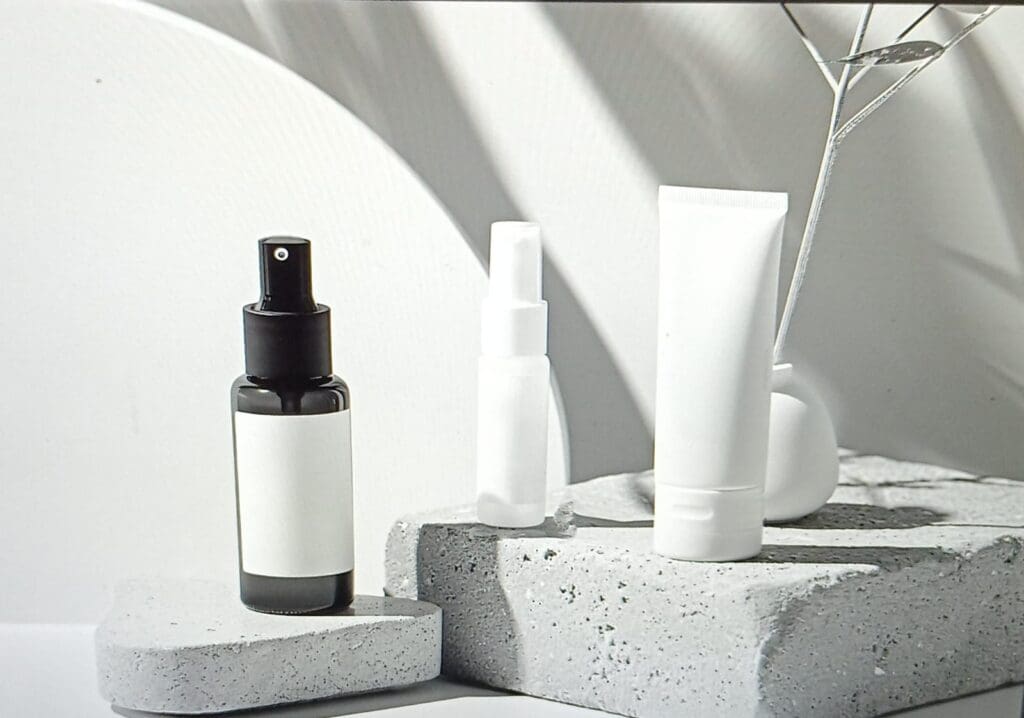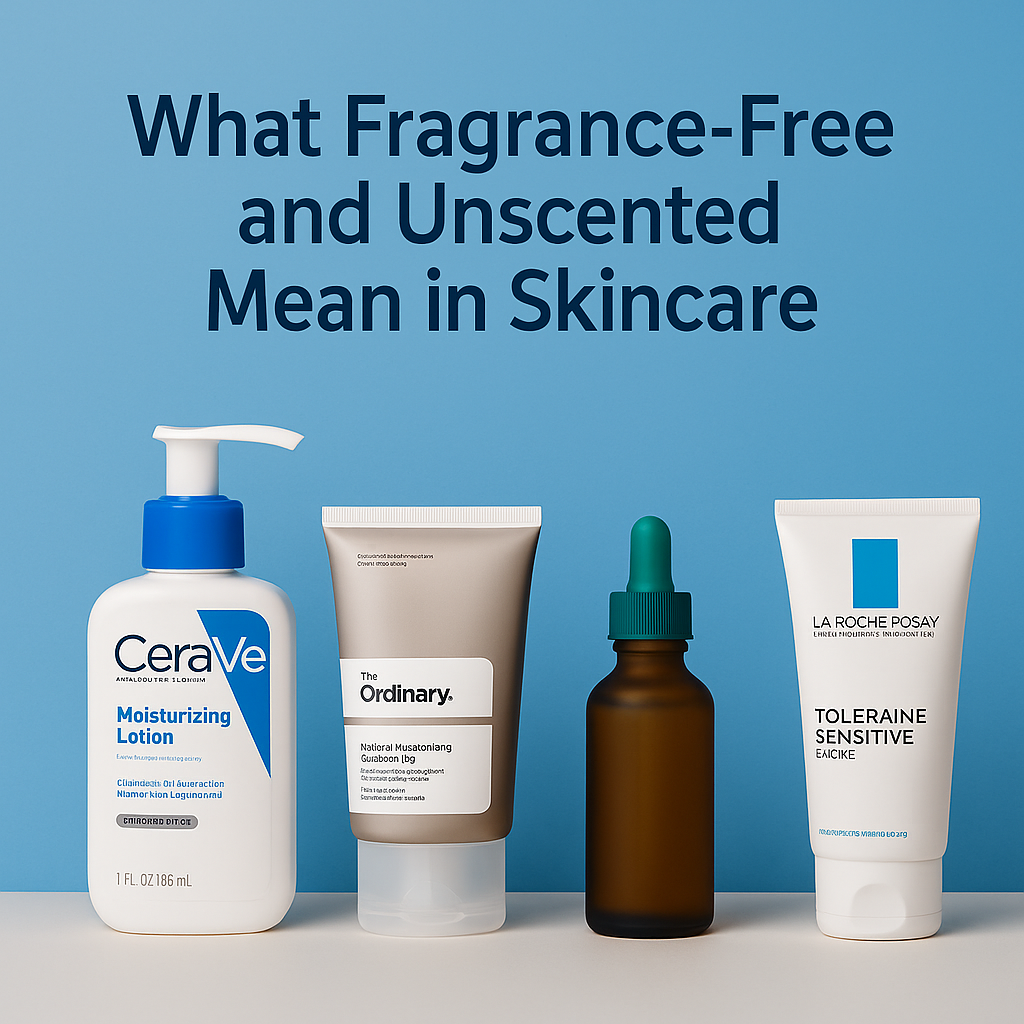
Fragrance-Free or Unscented? Here is the Difference
When shopping for skincare products, you have probably seen the terms “fragrance-free” and “unscented” printed on labels — and assumed they mean the same thing. However, here is the reality: they do not.
This small difference can have a big impact on your skin, especially if you are someone with sensitive skin, acne-prone skin, or frequent irritation during summer months.
Understanding what these labels actually mean will help you make smarter and safer skincare decisions — and avoid spending money on products that may secretly be harming your skin.
Let us break it all down clearly and simply.
What Does “Fragrance-Free” Actually Mean?
A product that is labeled fragrance-free means that no fragrance has been added — whether natural or synthetic — for the purpose of making the product smell pleasant.
Such a product may still have a natural scent due to its ingredients (for example, niacinamide, zinc, or botanical extracts), but no separate perfume or masking agent has been included just to alter its smell.
Benefits of fragrance-free products include:
- Suitable for sensitive skin
- A better choice for people with eczema, rosacea, or skin allergies
- Less likely to cause irritation, stinging, or redness
What Does “Unscented” Mean? (It Is Not What You Might Think)
Here is where many people get confused. A product labeled “unscented” does not mean it is fragrance-free. In fact, it usually means the opposite: the product might still contain fragrance — but only to hide or neutralize any bad or unpleasant smell.
These hidden additives are often called masking fragrances. You may not be able to smell them, but they are still present in the formula, and they can still irritate the skin.
Potential problems with unscented products:
- May include synthetic fragrance
- Not safe for individuals with fragrance allergies
- Can lead to breakouts, redness, or discomfort — especially in hot weather
Why Fragrance Can Be Harmful — Especially in Pakistani Summers
In Pakistan’s hot and humid climate, our skin is already under stress due to:
- Excessive sweating
- Pollution
- Dust and UV exposure
- Frequent product buildup from sunscreen or makeup
Adding fragrance into your routine under these conditions can easily aggravate the skin, particularly if you are already prone to:
- Acne or clogged pores
- Rosacea or redness
- Sensitive or reactive skin
Fragrances (even “natural” ones like essential oils) are among the most common allergens found in skincare products. Although they may smell good, for your skin they can be a silent irritant — especially when used daily in multiple steps of your skincare routine.
Is Fragrance Always Harmful? Not Necessarily.
To be clear, fragrance is not always a bad thing for everyone.
Some people enjoy scented products, especially when it comes to body lotions, face washes, or masks with a calming aroma. These scents can enhance the experience and create a relaxing routine — which is absolutely fine if your skin can tolerate them.
However, if you have been dealing with redness, itching, breakouts, or sensitivity, and you cannot figure out the cause — then it may be time to check whether fragrance is playing a role in your reaction.
Common Pakistani Products That May Confuse You
In the Pakistani skincare market, both imported and local products often use misleading marketing terms to appear gentler or more skin-friendly. For example:
- A product may say “dermatologist tested” but still contain artificial perfume.
- Another may say “unscented” but still include masking agents.
- Some labels use the word “natural” while containing irritating essential oils.
Always look at the full ingredients list, not just the front label. Watch out for ingredients like:
- Fragrance
- Parfum
- Linalool
- Citronellol
- Essential oils (lavender oil, citrus oil, peppermint oil, tea tree oil, etc.)
- Masking agents or “aroma”
How to Choose the Right Products (Especially for Sensitive or Acne-Prone Skin)
Here is a simple table to help guide you when choosing skincare:
| Skin Type | What to Look For | What to Avoid |
| Sensitive / Reactive | Clearly labeled fragrance-free | Unscented or parfum-containing products |
| Acne-Prone | Fragrance-free and non-comedogenic | Essential oils and perfumed serums or creams |
| Normal Skin | Mild fragrance is acceptable | Strong citrus or floral perfumes |
| Oily Skin | Light gels that are fragrance-free | Thick creams with strong scents |
Conclusion: Read Labels, Not Just Claims
One of the most common reasons skincare fails to work in Pakistan is due to a lack of awareness about ingredients. Most buyers rely on catchy claims like “organic,” “natural,” or “gentle” — but the real safety lies in reading the back of the product.
So next time you are choosing a face wash, serum, or sunscreen, remember:
- “Fragrance-Free” means no added fragrance at all — this is the safer option for sensitive or allergy-prone skin.
- “Unscented” means the product might still have fragrance — just hidden, not noticeable.
Final Note from TheSkinPath.pk
If your skin feels irritated, itchy, or inflamed after trying new products — try switching to completely fragrance-free skincare for a few weeks. Many people are surprised at how much clearer and calmer their skin becomes when fragrance is removed from their routine.
Keep it simple, stay consistent, and always read beyond the label.
Also Read:
How to Read Skincare Labels: A Pakistani User’s Guid
Chemical vs. Physical Exfoliation: Which is Best for Your Skin?

Education: University of Peshawar
Ahmad Khan holds a Master’s degree in Chemistry and has been writing about skincare for over five years. With a deep understanding of ingredients and their impact on the skin, he enjoys sharing practical, science-based skincare advice. When not writing, he loves playing with his kids.
